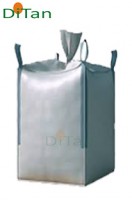- Ficode Announces Launch of AWS Cloud Services to Support Scalable Business Transformation
- Data-Entry-India.com Named among California’s Top Data Entry Companies by GoodFirms
- The Braided Rug Company Launches Eco-Friendly Recycled Plastic Rugs in Aberdovey
- Acer Unveils Aspire Go 14 AI Laptop, Powered by Gaming-Grade Performance
- Sendwishonline.com Introduces New Features to Make Group Greeting Cards More Fun, Personalized, and Remote-Friendly
- Applied Systems Integrates RPost Registered Email™ for Secure, Legally Verifiable Communications
- AA Carpet Cleaners Brings Professional Carpet Cleaning to Chelmsford
- GRIPIT Powers Amazon Prime Day with Global Tech Innovations for Indian Consumers
- Covalense Digital Unveils Latest Version of Csmart iPaaS to Power Next-Gen Telecom and Enterprise Integrations & API Monetisation
- Puducherry Welcomes The Grand Jewellery Exhibition By VBJ Since 1900
- Kent Air Conditioning Co Ltd Expands Reliable Air Conditioning Services Across Orpington and Bromley
- DMG Groups Conducts Successful 2 Day Advanced Excel & Generative AI Corporate Training for Bank of Baroda
- Webzyro Launches Patna’s Best SEO Course with Live Projects & Certification
- DDReg Celebrates 16 Years of Enabling Access to Global Healthcare
- Stunning Craft Exhibition by AAFT School of Interior Design Mesmerizes Visitors
 Mail to a Friend Mail to a Friend |
|
     |
AIS CEO Warns Of ‘Ticking Time Bombs’ At Public And Home Swimming Pools
As the peak summer swimming season looms, Australian Innovative Systems (AIS)? CEO Elena Gosse is a woman on a mission. Her mission is to raise awareness of, and reduce the potential risk of chemical leaks in public and backyard swimming pools by ending the dependence on hazardous chlorine dosing. But it?s not chlorine that is the enemy, rather the method of dosing, Elena explains.
?In my opinion, any facility that stores chlorine in liquid or gaseous forms for pool water disinfection is a ticking time- bomb and great risk to public health and safety, Elena warns.
?Of course, when used properly, chlorine is safe and is still the most effective form of water disinfection. When it comes to chlorine or chemical spills however, most of these incidents could have been prevented by adopting safer, simpler and smarter inline chlorine generation technology such as the kind our company manufactures.?
AIS? multi-award-winning technology produces chlorine within the pool water (rather than adding it afterwards) in fresh, salt or mineral water pools. Sodium hypochlorite (liquid chlorine) is produced from minerals and salts dissolved in water passing through electrolytic cells. This process, known as electrolysis, then disperses the chlorine directly into the water, keeping it clean and bacteria free.
Elena points to a 2017 report published by the U.S Centers for Disease Control and Prevention (CDC) entitled Inhalational Chlorine Injuries at Public Aquatic Venues in California (2008?2015). The report states that equipment failure and human error at public aquatic venues can lead to toxic chlorine gas releases and have negative health impacts on bathers and aquatic staff members.
?The report recommends sensible actions to lower chemical incidents such as regular testing of chemical control failsafe features and proper staff training etc but what it fails to recommend is the important additional opportunity to switch to disinfection by electrolysis and end the dependence on storing, handling and dosing chlorine in liquid, granular or gaseous forms,? Elena says.
Elena believes that many commercial pool facilities have over-looked the opportunity because they are simply unaware of it, or associate chlorination via electrolysis with salt water pools.
?Disinfection by electrolysis is possible in water with TDS (Total Dissolved Solids) levels as low as 1,200 parts per million (ppm), Elena says.
?Most ?chlorinated pools? (as distinct from salt water pools) will have elevated TDS levels because chlorine dosing raises the TDS of the source water. In fact, many pools dilute their water by dumping large quantities and replacing it with town water to keep within the recommended TDS level guidelines.
?This is why we launched our EcoLine commercial chlorine generator for fresh water swimming pools* which is successfully operating in a range of national and international aquatic facilities, including FINA-standard competitive pools.?
Elena is calling on the swimming pool industry and consumers to band together to minimise chemical storage and handling risks.
For more information, please contact us.
Australian Innovative Systems Pty Ltd
51 Millennium Place
Brisbane, QLD 4173
Phone: 07 3396 5222
http://aiswater.com.au/
Company :-Australian Innovative Systems Pty Ltd
User :- Australian Innovative
Email :-aiswatersem@gmail.com
Phone :---
Mobile:- -
Url :- AustralianInnovative











